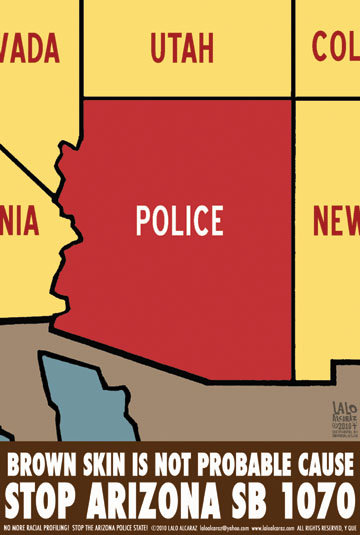I love the Dallas County DA - they're clearing these cases at an unbelievable rate...
Hard to believe so many innocent black men were imprisoned in Texas to begin with. They'd die in prison without DNA to exonerate them. A bunch of people already are.
--------------------------------
Dallas County man cleared in 1979 rape, robbery will be Texas' longest-serving exoneree
12:00 AM CST on Tuesday, January 4, 2011
By JENNIFER EMILY / The Dallas Morning News
jemily@dallasnews.com
Two men convicted in connection with a 1979 Dallas rape, robbery and abduction have been cleared of the crime through DNA testing. They have served about three decades in prison – more than any other Texas inmate cleared by DNA testing.
The exonerations are also the first where DNA testing has been used in Dallas County to prove men innocent of crimes that occurred as far back as the 1970s. Until recently, authorities thought that evidence had only been preserved by the county's crime lab since 1981, said Nina Morrison of the Innocence Project in New York. The discovery that other testable evidence exists could mean Dallas County's national record number of 20 exonerations since 2001 will keep growing.
"It may provide grounds to go back and look at other evidence from older cases where we thought there was nothing to test," Morrison said. "It's really a miracle it was saved."
Cornelius Dupree Jr., 51, is expected to be exonerated today in a Dallas County courtroom. He is on parole after having been released in July. He spent more than 30 years in prison.
His exoneration, the 21st, will be the first in Dallas County since May 2009, although three other men have been cleared since then with other evidence.
The second man, Anthony Ray Massingill, 49, will remain behind bars for now while authorities search for evidence to test in a second rape for which he is serving a life sentence.
Neither Dupree nor Massingill could be reached for comment. They were wrongly convicted in a Nov. 23, 1979, attack on a 26-year-old woman who was confronted at gunpoint along with a male friend after they stopped for cigarettes and to use a pay phone at a liquor store on Dolphin Road, north of Interstate 30.
The attackers carjacked the victims and eventually ordered the man from the car. They then raped the woman while holding a gun on her. They debated whether to kill her before shoving her out of the vehicle and threatening to kill her if she called the police. She was found unconscious in a median by a police officer.
Five or six days later, two men tried to sell the woman's rabbit fur coat at a grocery store two miles from the liquor store. The stolen car was found in the parking lot. Dupree and Massingill are not believed to be these men.
Dupree and Massingill were arrested Dec. 1, 1979, two miles from where the abduction occurred. Police initially stopped them because they matched the description of men wanted in connection with a similar case. Massingill had a gun; Dupree was unarmed.
Wrongly identified
Paul Cates, also of the Innocence Project, said the rape victim wrongly identified Dupree and Massingill in a photo lineup. The male victim could not pick out Dupree or Massingill.
At trial, both victims identified Dupree as one of the men who abducted them. Cates said that the woman, at times, confused the identities of the two defendants when identifying them in court.
Massingill was sentenced to three 10-year terms and a life sentence in connection with the liquor store abduction and another 1979 rape-robbery.
Dupree was sentenced to 75 years in prison for the liquor store robbery. He was not tried on the liquor store abduction-rape because prosecutors thought it wouldn't result in any more prison time. Although he was a suspect, a grand jury declined to indict him in the second 1979 robbery-abduction.
Evidence preserved
The Innocence Project accepted the case in 2007 after an intense review. Morrison said Dupree had written to them a few years earlier.
The Innocence Project first contacted the Dallas County district attorney's office about the case in 2008. The district attorney's office then asked the crime lab to search for any evidence in the case.
The lab found and tested pubic hairs from the victim's rape exam that contained genetic material from two men who were not Dupree and Massingill. Had the hair not contained two other men's DNA, neither Dupree nor Massingill would have likely been cleared in the case, Morrison said.
Morrison said that even if the crime lab does not find DNA to test in Massingill's other case, it's possible he could still be freed. She said that authorities at the time believed the same men were responsible for both crimes.
Morrison said the real perpetrators have not been identified, but she was not sure whether the test results had been compared with a national DNA database.
The Dallas County district attorney's office said Monday that prosecutors would answer questions about the case today. Massingill's attorney, Michelle Moore of the Dallas County public defender's office, declined to comment.
Preliminary tests showing Dupree's innocence came back two weeks after he was paroled because of time he'd earned through good behavior. The results of the final test – DNA from the victim confirming that the lab correctly labeled the sample – were not available until December.
Morrison said Dupree could have been released on parole earlier if he had admitted his guilt. But like many exonerees, he refused to do so.























No comments:
Post a Comment